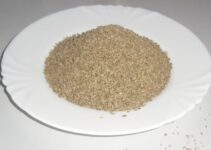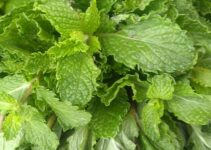Radish for cancer treatment
Radishes contain a compound called isothiocyanates, which fights against cancer like colon cancer. Isothiocyanates, a cancer-fighting agent, help control oral, colon, intestinal, kidney, and stomach cancers. A study by Jawaharlal Nehru Technological University showed that radishes genetically alter the path of cancer cells. The fibre also helps to ward off cancer. Radish is a member of the cruciferous family, well known for treating cancer. A Harvard School of Public Health study showed that more fibre intake reduces the risk of diabetes, heart disease, and colon cancer.
The fibre also helps to ward off cancer. Radish is a member of the cruciferous family, well known for treating cancer. A Harvard School of Public Health study showed that more fibre intake reduces the risk of diabetes, heart disease, and colon cancer.
Radish contains vitamin C
Radishes contain plenty of vitamin C, and a half cup of radish gives you about 14% of your recommended vitamin C. If you eat radishes regularly, it means you may keep away from many diseases. The vitamin C helps build tissue, blood vessels, bones, and teeth. This vitamin also develops your immune system. Radish also has other vitamins and minerals such as folate, vitamin B, vitamin K, potassium, magnesium, calcium, iron, zinc, copper, sodium, and phosphorous. Vitamin C saves you from harmful free radicals.
Radish for skin diseases
Radish is full of vitamin C, Zinc, B-complex, and phosphorous. These minerals and vitamins are beneficial in treating skin disorders such as rashes and dry skin. Radishes are used as face packs and help to provide a refreshing look.
Radish cures piles
Radish is known for fibre and roughage, along with plenty of water. Since it contains plenty of roughage, it effectively treats Piles Constipation. If you have digestion problems, it is better to opt for radish juice. Radishes stimulate the production of bile, thereby helping in digestion.
Radish for jaundice treatment
Radish is an excellent detoxifier, removes bilirubin from the blood, and is helpful for jaundice patients. Black radish and radish leaves are also very useful in curing jaundice. It helps to purify the blood and increases the oxygen-carrying capacity of the blood. Radish is the panacea for the Jaundice patient. It not only removes bilirubin but also stops its production.
Radish for asthma cure
Radish is considered one of the best foods for asthmatic patients. It helps to relieve respiratory congestion and sinus problems.
Radish for kidney disease
Radish is considered one of the best foods for kidney cleansing. Radish is a natural diuretic. It helps to prevent urinary tract infections and the burning sensation of urinary problems.
Radish lowers blood pressure.
Radish contains a higher amount of Potassium and also some levels of sodium. Sodium is known for increasing blood pressure, while it is counteracted by potassium. If somebody suffers from high helpful or blood pressure, he should take radish regularly to overcome BP.
Radish for weight loss
Radish has a sufficient amount of roughage and fibre. It is low in calories and glycemic levels. It has no fat or cholesterol. Using radish in one’s regular diet plays a more significant role in filling the stomach and satisfying your hunger, helping in weight loss. Radishes are high in water content, and carbohydrates keep weight loss under control. A diabetic patient can eat radish without any problems because it is low in glycemic.
How to make Radish Salads
Radish salads are delicious appetisersUsing radish in one’s regular diet. It is full of fibre and nutrients. For making salads, first of all, wash the radish. Chip it in rounded form from top to bottom. Use onions, 1 or 2 green chillies, and lemons. Mix all these things properly. Salt may also be used sparingly.
Side Effects of Radish
Radishes are generally considered safe to eat. They are nutritious vegetables that can be enjoyed raw in salads, pickled, or cooked in various dishes. However, there are a few potential side effects or considerations to keep in mind:
- Gas and Bloating: Radishes belong to the cruciferous vegetable family, which can sometimes cause gas and bloating in some individuals, mainly when consumed in large quantities. Cooking radishes may reduce this effect.
- Digestive Irritation: Some people may experience mild digestive discomfort or irritation when consuming raw radishes. Cooking or pickling radishes can make them gentler in the digestive system.
- Allergic Reactions: While rare, some individuals may be allergic to radishes, such as itching, swelling, hives, or difficulty breathing. If you suspect an allergy to radishes, seek medical attention immediately.
- Interaction with Medications: Limited evidence suggests that radishes may have a mild blood-thinning effect due to their vitamin K content. If you are taking blood-thinning medications, you should consult your healthcare provider before significantly increasing your radish consumption.
- Oxalate Content: Radishes contain oxalates, which may develop kidney stones. If you have a history of kidney stones or are at risk, consuming radishes in moderation and drinking plenty of water is advisable.
- Thyroid Interference: Some sources suggest that consuming large quantities of raw cruciferous vegetables, including radishes, may interfere with thyroid function. However, this is primarily a concern when these vegetables are consumed excessively.
It’s important to note that most people can enjoy radishes as part of a healthy diet without experiencing any adverse effects. If you have concerns about how radishes may affect your health, particularly if you have underlying medical conditions or allergies, it’s a good idea to consult your healthcare provider.







Sir, I am taking radish in the form of juice along with carrot, beet root, cucumber, ridge gourd, bitter gourd, snake gourd, tomato, bottle gourd,green leafy food, (spinach, amaranthus, curry leaves, corriander leaves, fenugreek leaves, I am having hbp, diabetes, thyroid, digestive problem, skin problem, weight loss and urinary problem. Hope this drink will take care of all my pe=roblems. Thanks a lot. God Bless.